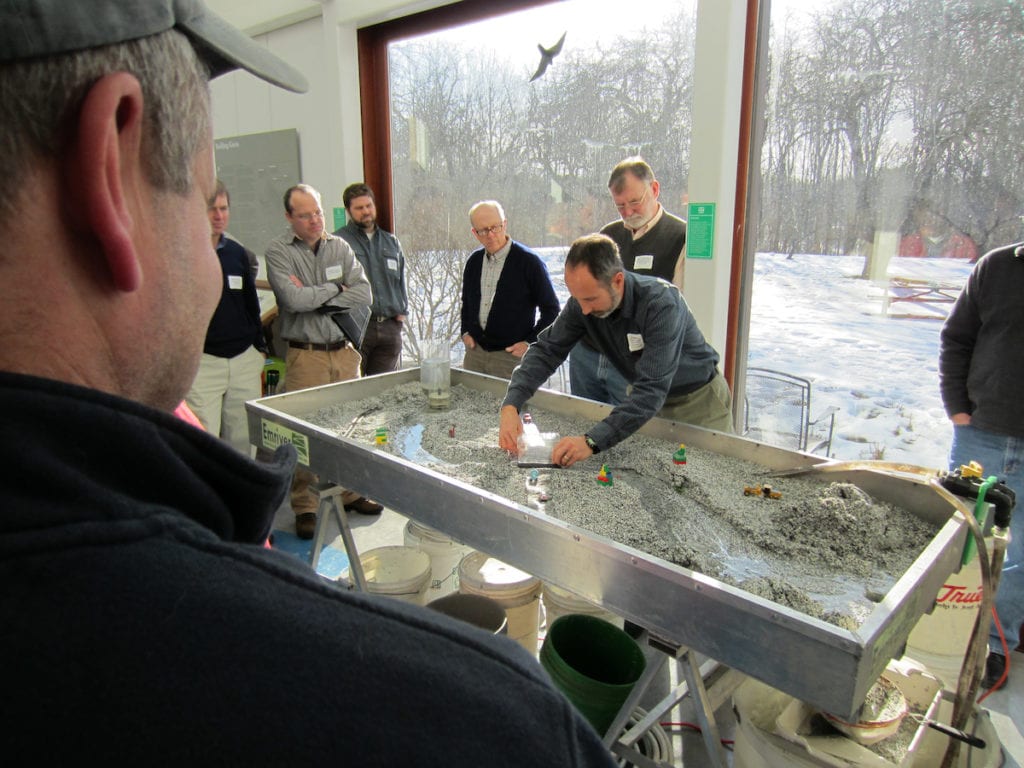
Maine Audubon is pleased to offer two sessions of our Stream Smart Phase 1 Workshop this spring:
Tuesday, March 26, 2019
Fields Pond Audubon Center, Holden
Thursday, April 4, 2019
Gilsland Farm Audubon Center, Falmouth
Registration: 8 – 8:30 am
Workshop: 8:30 am – 12:30 pm
$35 registration fee (includes refreshments)
Applying the Stream Smart principles to road crossings can help connect and maintain fish and wildlife habitat while protecting roads and public safety. Stream Smart crossings can also help towns prepare for the large and frequent storm events that have been washing out roads around the state and the northeast.
These workshops are designed for professionals responsible for road-stream crossings, including municipal leaders, managers, and public works employees. They cover road-stream crossing projects from site assessment to permitting and installation, and emphasize maintaining and restoring aquatic habitat and economic values of the stream. Workshop presenters include professionals from state and federal agencies and statewide non-profits, participants can receive recertification credit for Maine DEP’s Voluntary Contractor Certification Program, and information on potential funding sources such as the Department of Environmental Protection’s Stream Crossing Upgrade Grant Program will be shared as well.
The Department of Environmental Protection’s has just released new information about accessing funds through the Stream Crossing Upgrade Grant Program. This is a competitive grant program that matches local funding for the upgrade of municipal culverts at stream crossings to improve fish and wildlife habitats and increase community safety. Voters approved a $105 million bond in 2017 that included $5 million to support municipal culvert upgrades, and that funding will be available in two rounds this year, starting in April! Local governments, municipal conservation commissions, soil and water conservation districts and private nonprofit organizations are eligible to apply.
Surveys of culverts around the state have found that nearly 90 percent of culverts pose a barrier for fish and wildlife at some part of the year or the animal’s life cycle. About 40 percent of these barriers are considered severe. Investing in improving our culverts preserves habitat connectivity and helps wildlife. It helps towns and citizens, too – wider culverts are better able to weather increasingly severe storm events, reducing the damage and hazards caused by road flooding.
Don’t miss this great opportunity to improve stream passage and habitat connectivity for our wildlife!
